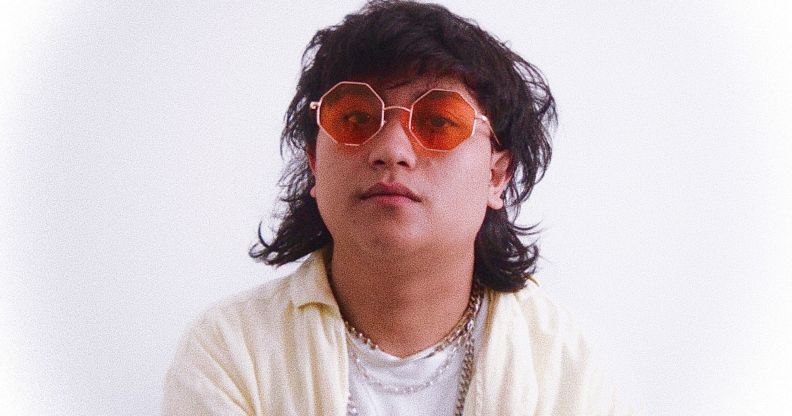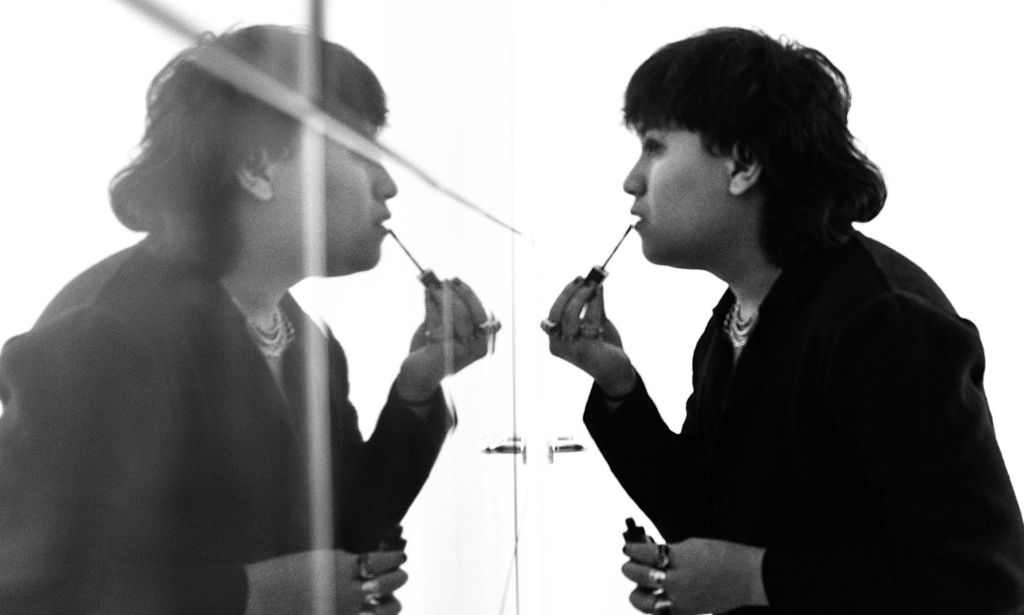Being LGBTQ+ in Malaysia: ‘You don’t know who to turn to’

Musician Shaf, aka moreofthem, grew up experiencing a “lot of internalised homophobia” and gender dysphoria in Malaysia – a country where LGBTQ+ and trans identities are criminalised. (Ben Ashurst)
LGBTQ+ people in Malaysia are under sustained attack from the government, but the next generation is giving hope, says one non-binary person.
Malaysia’s government is cracking down on the LGBTQ+ community. Queer people have faced arrests and forced conversion therapy in what officials term an attempt to stem the “spread of LGBTQ+ culture in society”.
Growing up in the country, Shaf, the musician also known as moreofthem, grew up experiencing a “lot of internalised homophobia” and gender dysphoria.
“I didn’t really feel masculine, I didn’t really feel all that feminine at the same time and I was kind of bouncing back and forth,” Shaf explains.
“And at the time obviously when you’re in that environment like a very strict religious environment, you don’t know how to navigate it, and you don’t really know who to turn to.”
Before moving to the UK for the first time in 2016, 2017, Shaf kind of knew the “idea of being transgender”, but there wasn’t a “lot on display back home”.
The predominantly Muslim country criminalises consensual same-sex sexual intimacy, with punishments ranging from corporal punishment to imprisonment under Sharia Law and British colonial-era civil laws.
The Malaysian government relies on the force of the law to prohibit expression and conduct that it deems outside of heterosexual, cisgender norms. It is one of 13 countries worldwide that explicitly criminalises the gender expression of trans people.
In 2021, Nur Sajat, trans businesswoman and social media personality, was charged with insulting Islam after she attended a religious event three years earlier wearing clothing traditionally considered female attire. This offence can be punishable by imprisonment in Malaysia.
When Sajat was called by religious authorities to discuss the charges, she alleges that officers physically and sexually assaulted her as her mother called out in protest.
Sajat fled persecution in Malaysia and was arrested in Thailand before she found refuge in Australia.

At the start of the year, Shaf visited Malaysia to see family and friends.
“There are cases where you have to be careful, and yeah, raids can happen,” they say.
However, they were pleased to see that there is a a growing acceptance of queerness among younger generations.
“I’ve seen a lot of people with trans identities, and I have a few friends that are non-binary in Malaysia, and they’re able to navigate Malaysia quite safely for the most part.”
They add: “But they do lack the resources in the sense there’s not a lot of LGBT-friendly clinics back in Malaysia.
“You kind of have to play it safe, and you have to be a bit hush hush about it, which is a shame. That was kind of my experience.”
When Shaf was home with family they “had to be really, really careful” about expressing their identity.
“But with friends for the most part – there are some bad apples with people my age – but for the most part, a lot of people that I encountered that have been the same age and maybe younger, they seem to be getting more open and bit more accepting.
“So I can see that there is some form of progress in Malaysia. I don’t think we’re anywhere close, but I think we are hopefully getting to a stage of working towards it.”
Being from Malaysia, Shaf wants to use their platform, music and identity to “help champion others and give them a voice”. After all, they know the power of visibility first-hand.
Shaf says their eyes were opened when a “really good friend” began transitioning.
It took them until “maybe 2020, 2021” to become comfortable with their own identity.
“I was kind of going back and forth, and I had many discussions with friends.
“I would say to them, ‘I don’t really feel like a man. I don’t really feel like this either. I don’t know what I’m going to do at this moment.’ But then I had a friend that came out at non-binary, and they gave me this strength to kind of breathe.
“I went to basically all the meetings with him and was there for him when no one else was and that was kind of my way of learning about it all.”
More recently, the Malaysian Islamic Party rallied against British band Coldplay because of its support of LGBTQ+ people, and authorities seized Pride-themed Swatch watches because the items had ‘LGBT symbols’.

